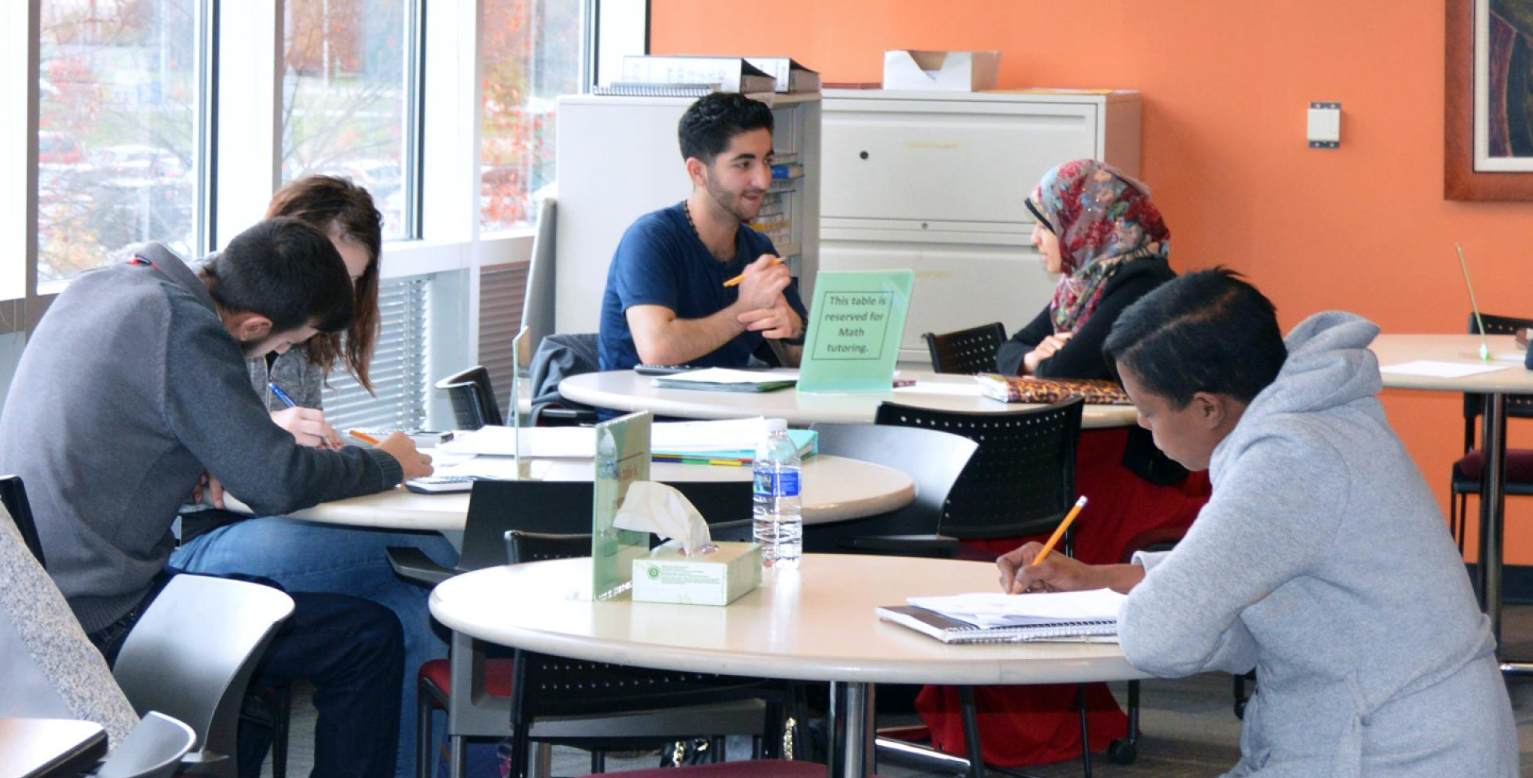The “Inside Track” on Henry Ford College
Gallery

College can be challenging for a multitude of reasons. Classes are demanding, attendance is mandatory, and time seems to be going faster than you and your homework can keep up. It can feel as if the world is against you, like there’s nobody to help through the ups and downs of higher education. The Learning Lab, Assisted Learning Services, and Inside Track are resources available to all Henry Ford College students, which seek to help resolve some of these issues, assisting mainly through various forms of tutoring and one-on-one support.
These resources serve to be of great benefit for “at risk” students, referring to those who have a likelihood of failing a course or not completing a degree. The college recognizes that different environmental factors may be affecting said students, including socioeconomic problems, food insecurity or lack of transportation, making it difficult to perform well in the classroom. “For a lot of students, their academic challenges stem from other challenges that they may be facing,” said Chardin Claybourne, coordinator of the Learning Lab.
HFC pairs struggling students with the most appropriate, available accommodation; for example, the college might provide gas money to individuals with inconsistent transportation, or point nutrition-deprived juniors towards the Hawk’s Nest, the campus food pantry. Non-academic services help students overcome adversity off campus, allowing for a stronger focus on schoolwork. After these procedures have been properly utilized, it becomes easier to seek academic help.
The Learning Lab is considered the central location for academic support services, striving to “assist students and faculty with evidence-based techniques for improving students’ academic preparedness and success.” Tutoring is available both in-person and online, at no cost; these expenses are built into tuition, so services like those offered at the Learning Lab are free for everybody to use. There’s a wide range of knowledgeable tutors and staff members eager to help. In addition, developmental classes in math and English are offered to new students who might not be at an adequate grade level. “We want to be able to help those students who need additional academic support,” said Mr. Clayborne.
Inside Track is a mentor program that aids students from a variety of standpoints. Many young adults don’t feel comfortable seeking help from instructors, advisors, or others older than them; Inside Track allows these students to communicate their issues with mentors their age. “The mentors can really be a bridge between the students and the resources they need,” said Mary Kosmalski, advisor for the program. They tutor and assist students, including students studying English as a second language. Inside Track mentors also assist students with study skills and succeeding in their programs. “I like to help people choose classes. I’m really interested in what people want to do with their careers,” said mentor Luay Al-Saidi. Prior to the semester, mentors go through a minimum of six hours of training, where important conversations about working with others and diversity are initiated. “We do a lot of developing effective mentoring skills, which includes listening and learning about the academic resources on campus, the student support services and campus life,” Ms. Kosmalski said. So far, the program has done very well; last semester, 77 percent of enrolled mentees registered for winter classes.
Assisted Learning Services consists of several counselors that work alongside students with diagnosed disabilities, including visual impairments, psychiatric issues and anxiety. Dr. Maureen Webster is responsible for arranging accommodations; this might mean organizing interpreters for the hearing impaired or learning how to use software that reads information for the visually impaired. In some cases, people are referred to the Learning Lab for extra academic help. “Everybody here has some worth, some talent, and it would be my job to discover what’s stopping that person from moving forward,” Dr. Webster said.
Mental health is usually an unpopular conversation within an academic setting, but the counselors of ALS try to find the most appropriate solution. “If there’s something serious going on, I try to refer that person to another agency where they could get some mental health treatment. These things need to be treated before school becomes a major focus,” Dr. Webster said.
Students who may need help with a math problem, financial assistance or seeking therapy, consider contacting one of the support services at HFC.
